
Voice-Controlled Desk Lamp
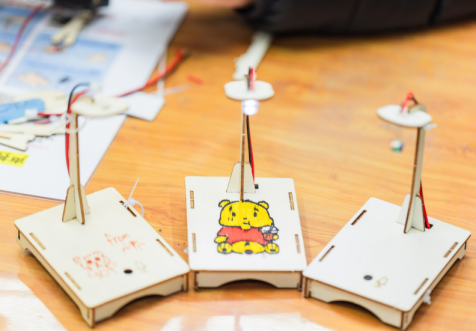
The voice-controlled desk lamp operates by detecting sound signals in the surrounding environment through a sound sensor. After signal processing, it converts these signals into control signals to turn the light on or off. Through the production process, students can gain an in-depth understanding of the principles and applications of voice control technology. This helps broaden their knowledge of technology and awareness of emerging technologies.
Working Principle
It mainly includes three steps: sound sensing, signal processing, and light control.
1. Sound Sensing: The voice-controlled desk lamp has a sound sensor that detects sound waves when there are sounds in the surrounding environment and converts them into electrical signals.
2. Signal Processing: After the electrical signals pass through the sound sensor, they enter the signal processing module. This module amplifies, filters, and digitizes the electrical signals to extract the effective sound signals.
3. Light Control: The processed sound signals are converted into corresponding control signals through the control circuit connected to the voice-controlled desk lamp. These control signals trigger the lamp’s internal light controller, thus controlling the lamp’s lighting status.


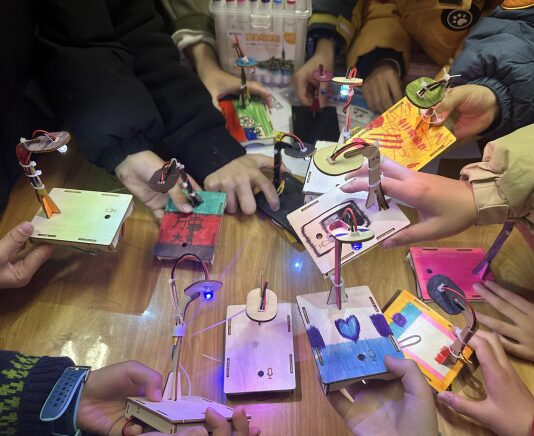
Production Steps and Key Points
Disassemble Parts as Shown
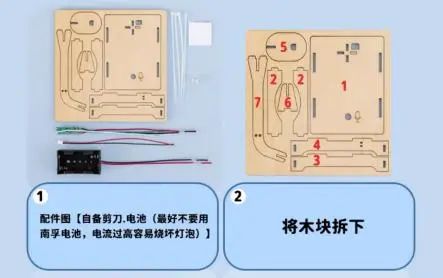
Wiring Connection Key Points:
Align the copper wires at both ends and twist them together; use electrical tape to secure the connection.
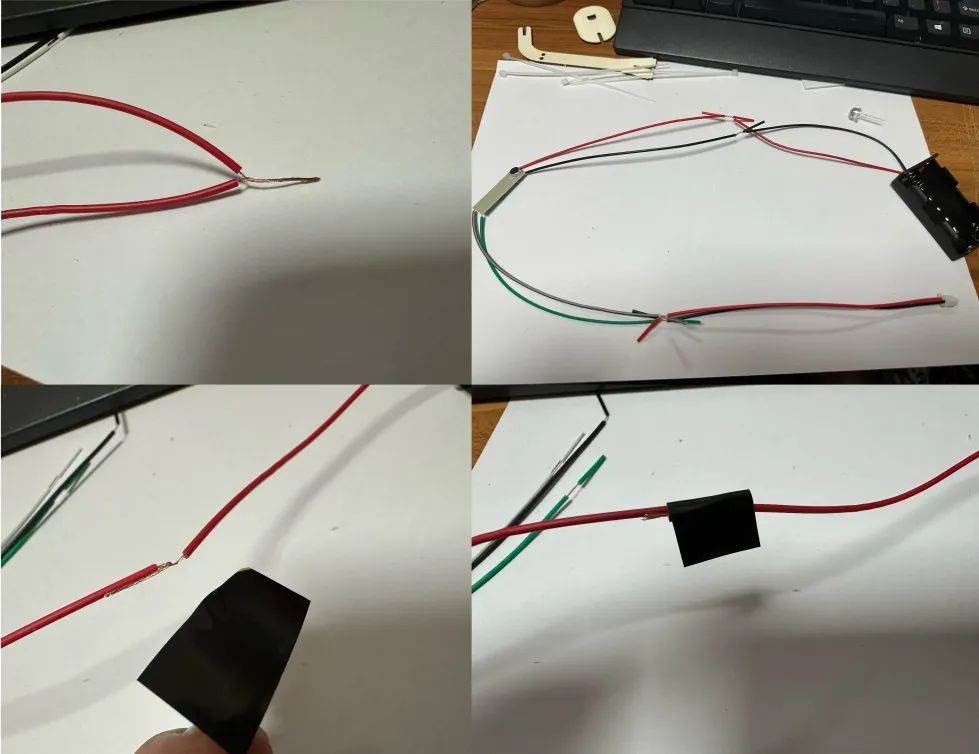
Bracket Installation Key Points:
Place the panel flat on the table, and gently shake and press the two clips into place simultaneously (be careful not to place them incorrectly).


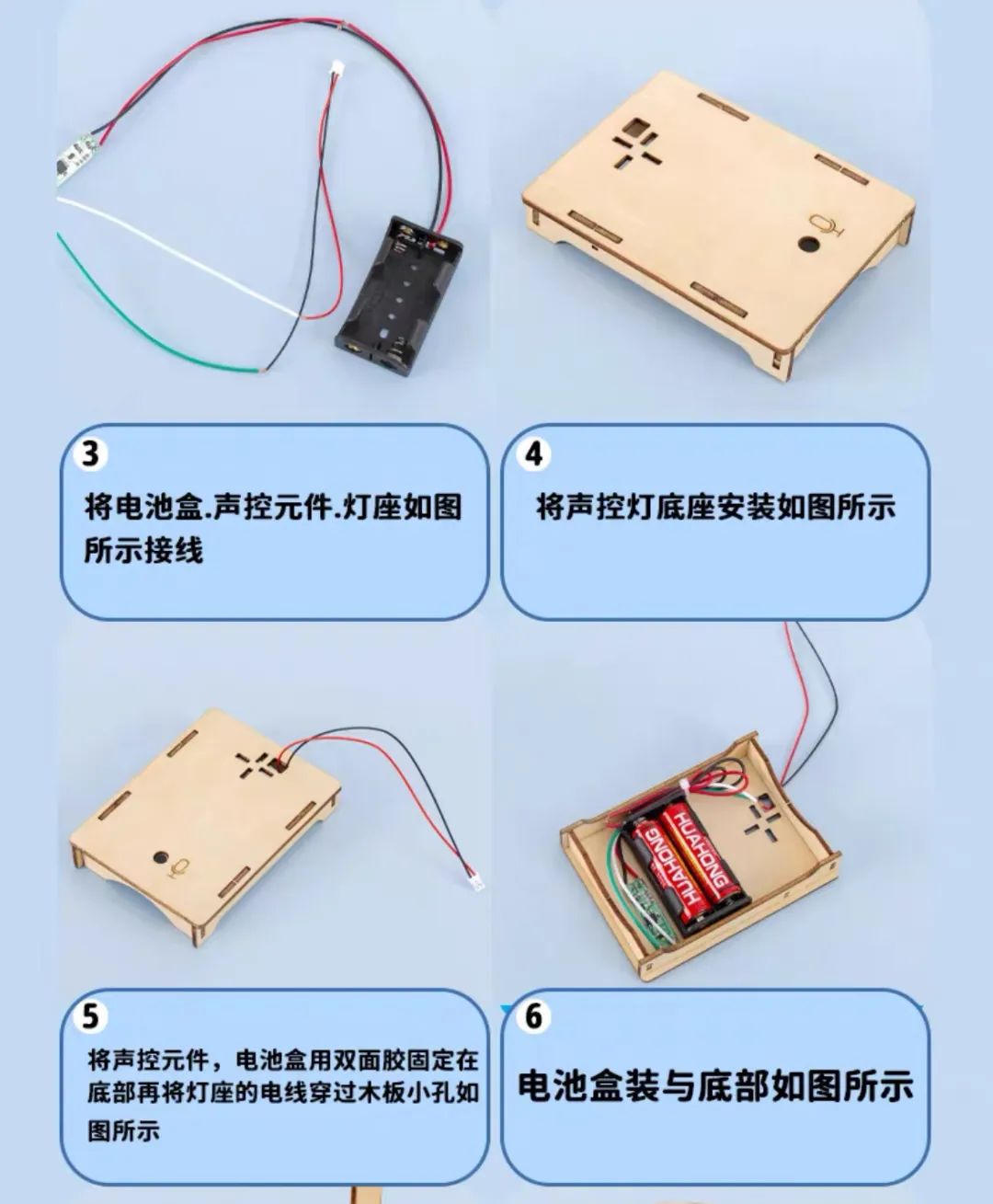
Use double-sided tape to attach the battery box to the voice control device.
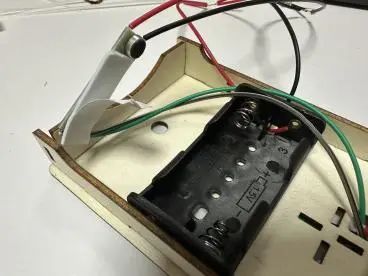

Creative Ideas
Draw Fun Cartoons

Some students painted the incandescent bulb in colors to emit different colored lights.
Others made a small lampshade to prevent the light from being too harsh; different designs yield different effects. Which design do you prefer?
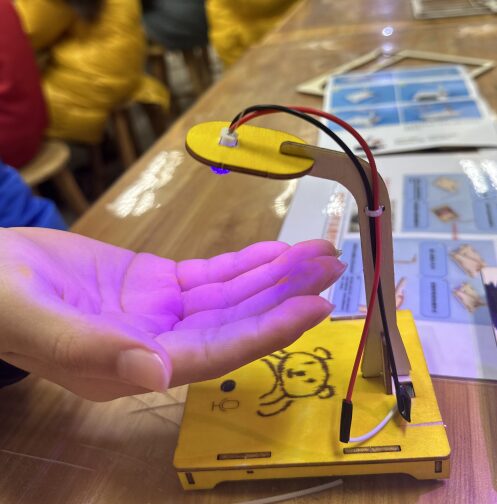
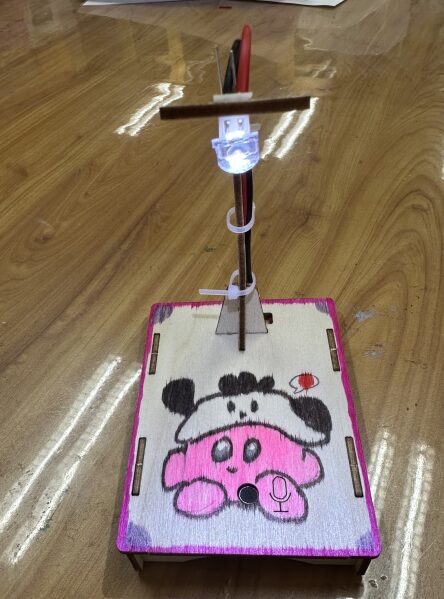
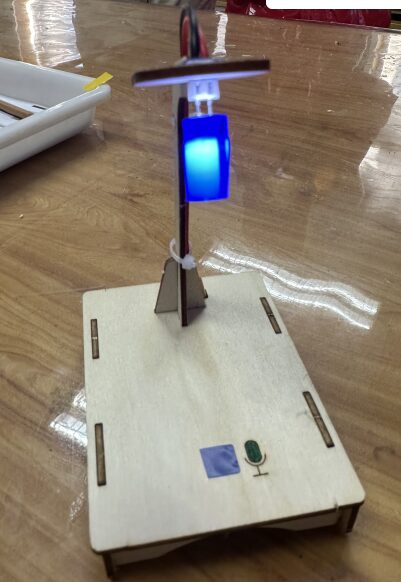
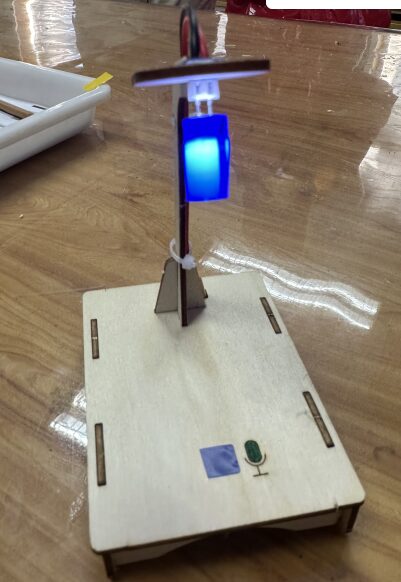
Applications in Life
Voice control technology has many applications in daily life, including but not limited to the following:
1. Smart Home: Voice control technology can be integrated with smart home systems to control household devices through voice commands, such as smart lighting, smart appliances, and smart security systems. Users can turn devices on or off, adjust brightness or temperature with simple verbal commands.
2. In-Car Systems: Voice control technology can be applied to entertainment and navigation systems in cars, allowing drivers to control music playback, adjust air conditioning temperature, and navigate to destinations through voice commands, enhancing driving safety and convenience.
3. Voice Assistants: Voice assistants on smartphones and smart speakers, such as Siri, Alexa, and Google Assistant, utilize voice control technology for human-computer interaction. Users can ask about the weather, send messages, set alarms, play music, etc., increasing convenience for users.
4. Healthcare: Voice control technology can be used in healthcare, for example, helping disabled individuals with daily activities like controlling wheelchairs and turning lights on and off. Additionally, it can be used for operating medical devices, such as surgical instruments and medical equipment.
5. Gaming and Entertainment: Voice control technology can be applied in gaming and entertainment, allowing players to control game characters’ actions or engage in virtual reality experiences through voice. This interaction can enhance the fun and immersion of the game.
6. Education and Training: Voice control technology can be used in education and training fields, for example, language learning software can use voice control technology to correct pronunciation errors and provide real-time feedback. Additionally, it can be used in virtual laboratories, simulation training, and other educational scenarios.
In summary, voice control technology is increasingly applied in daily life, improving people’s quality of life and work efficiency, providing more convenient and intelligent experiences.
Fun Quiz
1. What is voice control technology?
2. What applications does voice control technology have in smart homes?
3. How do voice assistants like Siri and Alexa utilize voice control technology for human-computer interaction?
4. Do you think voice messages are more convenient than text messages?






Minhang District Youth Activity Center
Long press the QR code to recognize us